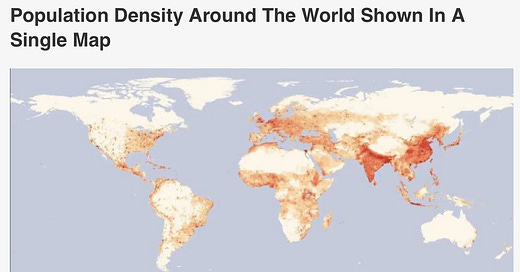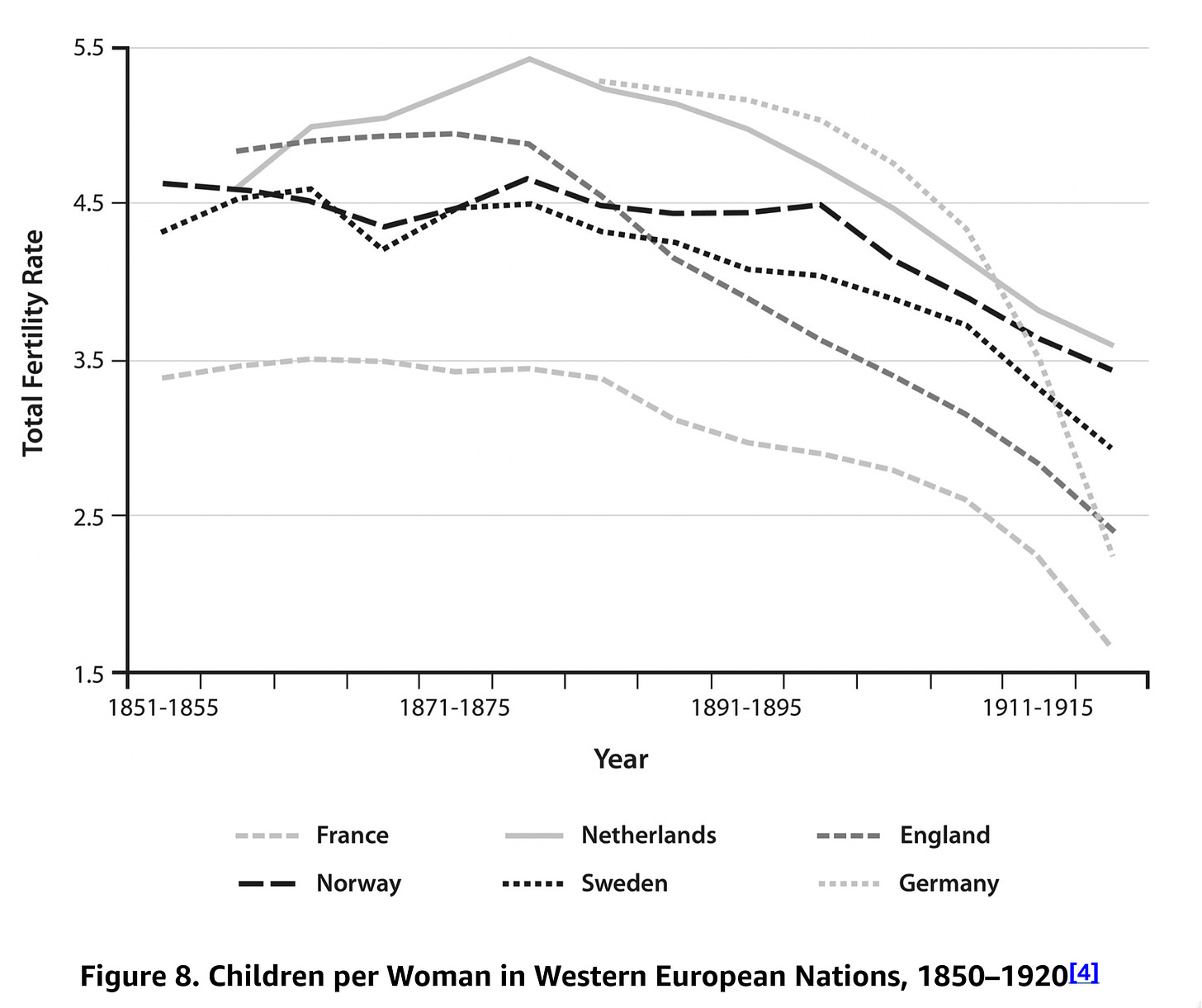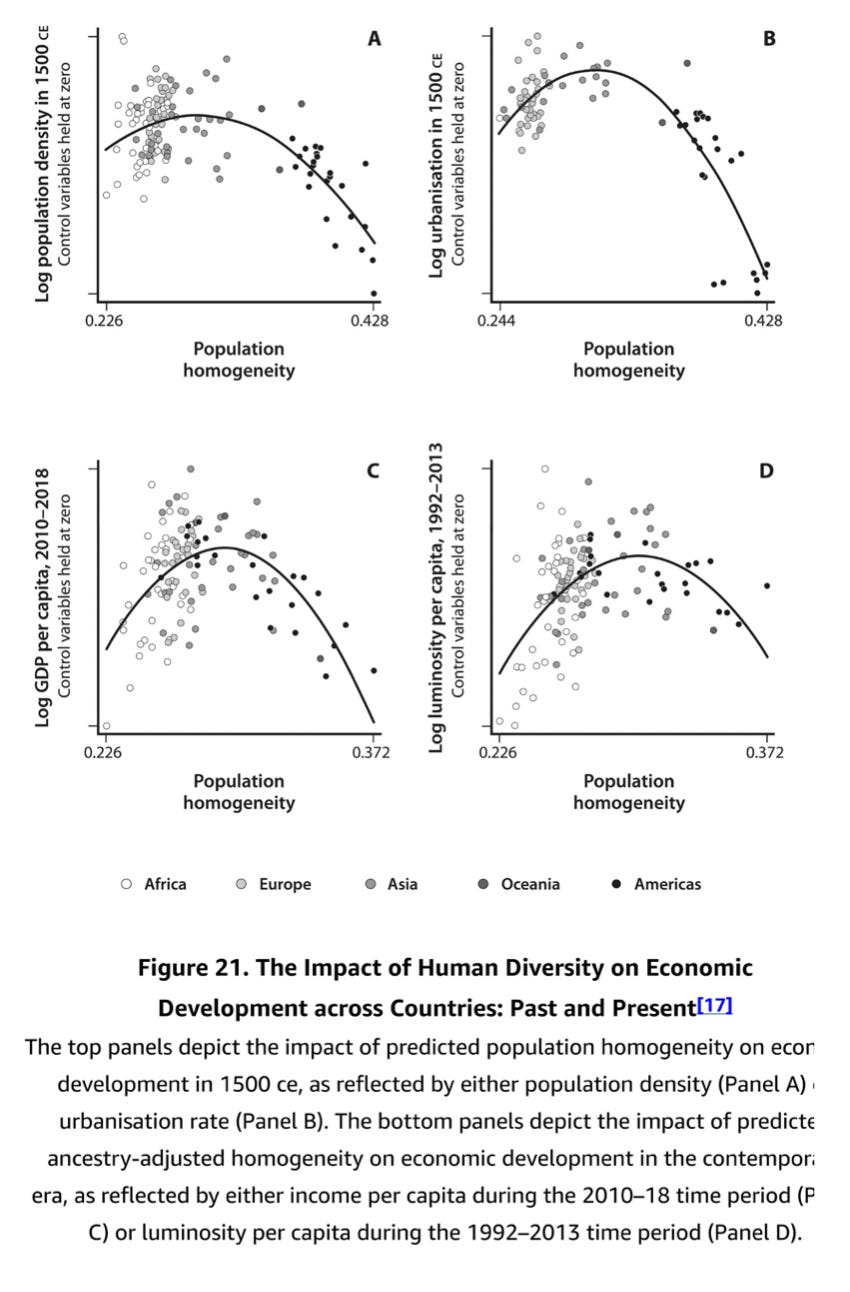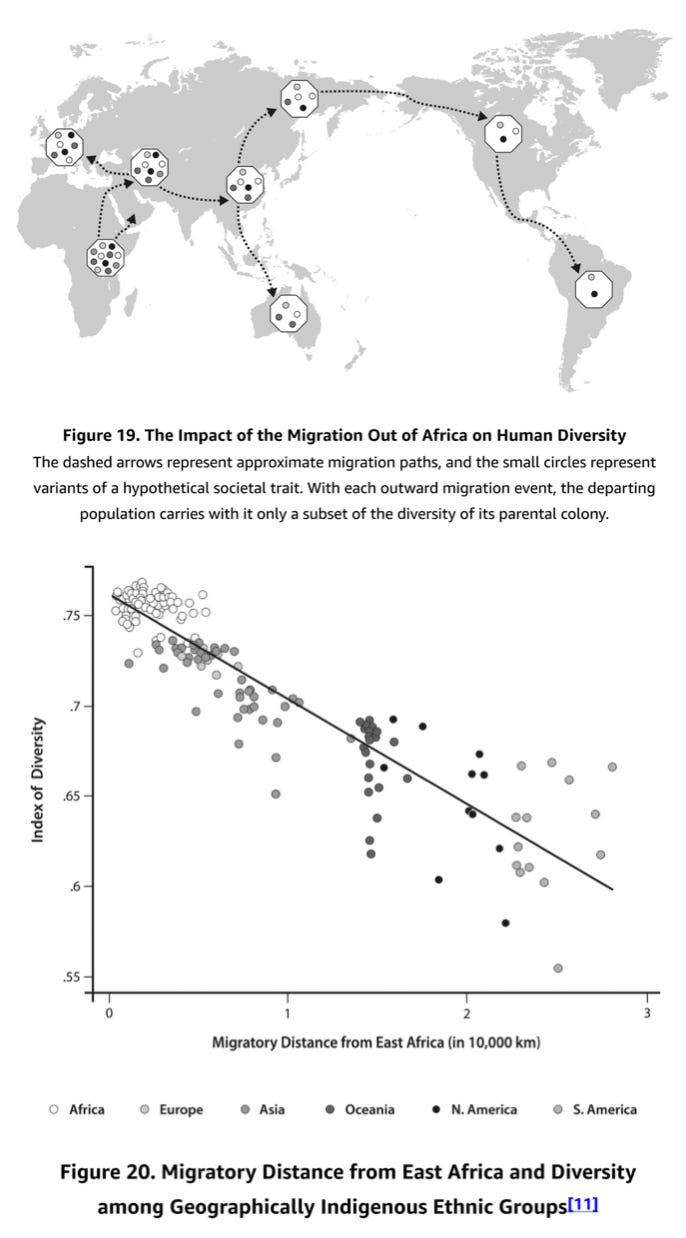I Really Like Oded Galor’s Very Good & Very Brand-New "Þe Journey of Humanity: Þe Origins of Wealth & Inequality", &
BRIEFLY NOTED: For 2022-06-30 Th
FIRST: I Really Like Oded Galor’s Very Good and Very Brand-New The Journey of Humanity: The Origins of Wealth and Inequality
And it gets a very nice review <https://www.amazon.com/Journey-Humanity-Origins-Wealth-Inequality/dp/0593185994/>:
Simon Kuper: Oded Galor Explores the Ancient Roots of Modern Life: ‘The plough versus the hoe is one of many fascinating examples in Oded Galor’s book… The Journey of Humanity <https://www.amazon.com/Journey-Humanity-Origins-Wealth-Inequality/dp/0593185994/>…. Before the 19th century, a family that had advanced beyond subsistence was incentivised to have more children…. When modern factories emerged and the service economy began to develop, a family’s calculations changed…. Instead of having lots of children and sending them out to work, parents began to have fewer, and to spend money educating them, so that the kids could earn more over their careers. This was a particularly good investment once improved medical knowledge extended lifespans…. The world’s most advanced countries thus began to escape the Malthusian trap…. Eventually the whole world lurched forward….
People from regions with high crop yields are rewarded for being future-oriented…. What has made… exchange of ideas particularly productive, argues Galor, is that Europeans are divided into different national traditions, each with its own knowledge and mindset…. In what feels like one of the book’s moments of overreach, Galor tries to quantify the contribution of underlying factors to today’s “variation in prosperity between nations”. He concludes that “geoclimatic characteristics account for about two-fifths”, “the disease environment for about one-seventh”, while “ethnocultural factors account for one-fifth”….
Galor… estimates that perhaps a quarter of the differences in prosperity between nations are due to human diversity…. “cultural, linguistic, behavioural and physical diversity”…. Homo sapiens arose in East Africa… and so that region is today the world’s most diverse; Galor deems Ethiopia the apogee…. The further humans strayed from East Africa, the smaller and less diverse were the travelling groups. He cites Bolivia as one of the world’s least diverse countries. Now comes his claim: too much diversity is bad for prosperity, but so is too little diversity. Highly diverse societies are prone to conflict but homogeneous societies tend to be less innovative…
I remember showing up at the Clinton administration treasury department in the spring of 1993, and having coffee with one of the CEA senior staff economists, and asking him what he thought of Clintons CEA members—Laura Tyson, Joe Stiglitz, and Alan Blinder. He said Laura was absolutely first-class, wonderful—on everything except trade issues, where she was a little weird and had a few hobbyhorses of her own to ride. He said Alan Blinder was truly great—except that on macro issues he expected the government to be able to successfully fine-tune the economy more than was reasonable. And he said that Joe Stiglitz was superb—except that wherever there was some micro issue that hinged on market structure, he had a proposal for a crazy restructuring to rejigger people’s information and decision sets to make everything much better. In short: they were wise where they were drawing on and applying the near-consensus of the profession, and unreliable in their particular areas of expertise where they thought they new better than the profession.
I have a somewhat similar feeling about Oded Galor’s truly wonderfully written The Journey of Humanity—: it is great—where Oded to laying out the near-consensus of the profession. It is very interesting, but unreliable, where Oded differs from the average of the rest of us because he thinks he knows better.
Take Oded’s belief that we can and should account for the demographic transition—the reduction in fertility that has liberated us from the spell of the Devil of Malthus—to the coming of industrial- and service-sector technologies that raised the return to education and “human capital”, and thus induced parents to seek to have fewer children so that they could devote more resources to getting each of their children an education and so get them well-launched into life. Well, yes, to some degree. But the fertility transition starts in France, in the 1700s. And its pattern really does not seem to fit times and places where formal literacy and numeracy give you a big leg up in the job market as an adult. Rather, when I look at the pattern of the fertility transition, I see places where, secondarily, inheritance customs make it dangerous to have too many sons survive to adulthood because then each will be left with a farm too small to survive on. And I see places where, primarily, falling infant and childhood mortality makes it unlikely that you will be left without surviving sons.
Think about it: for most of agrarian age history, middle-aged females only have any social power at all if they have surviving sons. Outliving your husband and your sons is a true catastrophe. Yet under Malthusian conditions, about 1/3 of mothers will be left without surviving sons. In my view this leads mothers to care little about the value of giving each of their sons (and perhaps daughters) more of a leg-up by reducing the division of family resources among many children. It leads mothers to care much about striving for yet another pregnancy as insurance in the hope of avoiding winding-up in the son-less 30%. Thus it is the prosperity and resulting improved public heath that diminishes early mortality rather than any sectoral change-generated shift in the returns to formal literacy and numeracy that is the principal driver here.
In an analogous quibble, I see the association between high crop yields and “future orientation” to be dubious, in large part because I do not believe in “future orientation” as a psychological mindset passed down through generations. I see institutions that keep people from being able to get their hands on the capital and eat the seed corn when they think it is desirable to do so. And I see such institutions as very contingent.
Plus I do not think that Oded pays enough attention to the fact that Britain was an island, in the Atlantic Ocean, with glaciers that had scraped off all the rock above the coal, and with a central government given uniquely broad powers because the landlord class thought that they were existentially threatened by the possibility that the loss of a war might lead to the downfall of the Protestant religion. I see our escape from Malthus as much more contingent than he does.
And I do not know what to make of Oded’s “optimum diversity” stuff. I think what is going on is that Africa is relatively poor; and that Latin America is relatively less poor; and that the computer is grabbing whatever right hand-side variable helps it account for that.
But these are quibbles: The book is great!
One Audio:
Adam Ozimek & Cardiff Garcia: The Hopeful, Undetermined Future of Remote Work <https://shows.acast.com/the-new-bazaar/episodes/the-hopeful-undetermined-future-of-remote-work>
One Image:
Very Briefly Noted:
Zanny Minton Beddoes: The Economist: ‘Ukraine won the short war…. Now comes the long war…. [which] does not have to be fought on Mr Putin’s terms…. [But] Ukraine… needs enduring support and that, alas, is still in doubt… <https://view.e.economist.com/?qs=c9f32bcb4c30570fad3fbf5343068d5d52b4464bba7793df5d5be131fe1061aecce4ec778e410f5cfca8933e0254d34f60aa0789e654549cb11830a848a0c646771f874d6cb3f80bd80f198c11ca7971>
John Timmer: Wolves Survived the Ice Age as a Single, Global Population: ‘How did these animals retain genetic continuity over the huge distances that separated them? Apparently, by repeated expansions of the population in Siberia…. Data favors a model where dogs were first domesticated in Eastern Asia…. But as our best friend spread around Asia with us, it came into contact with another population, likely near the Middle East… could have been wolves, could have been a dog population that had been domesticated separately… <https://arstechnica.com/science/2022/06/ancient-wolf-genomes-indicate-an-east-asian-origin-for-dogs/>
Doug Irwin: Globalization Enabled Nearly All Countries to Grow Richer in Recent Decades: ‘It has been a race to the top. Almost every country is richer today, some substantially so, than three or four decades ago when the globalization era gained steam… <https://www.piie.com/blogs/realtime-economic-issues-watch/globalization-enabled-nearly-all-countries-grow-richer-recent>
Topo Swope Talent Agency: Allan Aquino <https://toposwopetalent.com/talent/747/allan-aquino/>
Ben Thompson: Passport Update, Independence & Interoperability, Web3 Use Cases <https://stratechery.com/2022/passport-update-independence-and-interoperability-web3-use-cases/>
Twitter & ‘Stack:
Richard Hanania: Passing the Bechdel Test
James Fallows: A Lucky Country, on Thin Ice
Director’s Cut PAID SUBSCRIBER ONLY Content Below:
Keep reading with a 7-day free trial
Subscribe to Brad DeLong's Grasping Reality to keep reading this post and get 7 days of free access to the full post archives.










